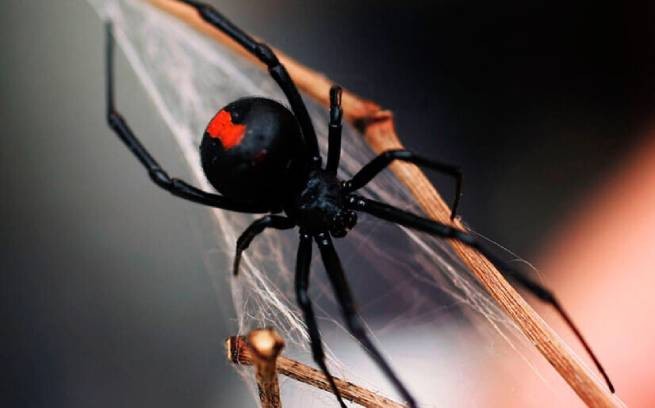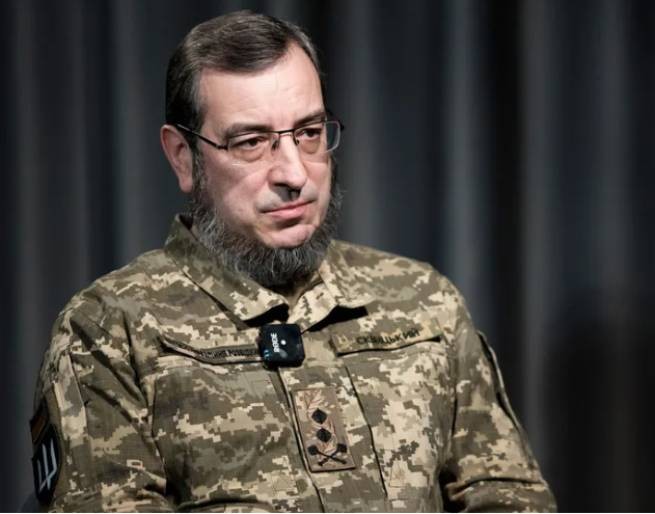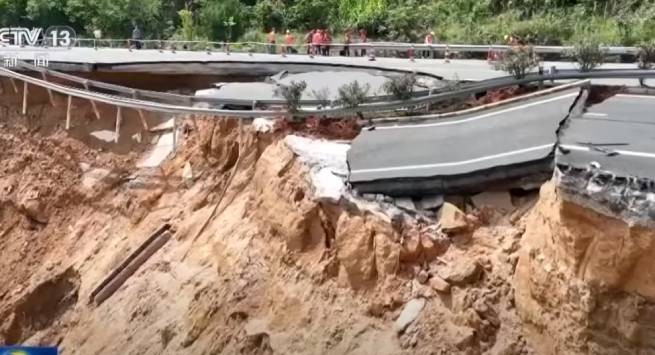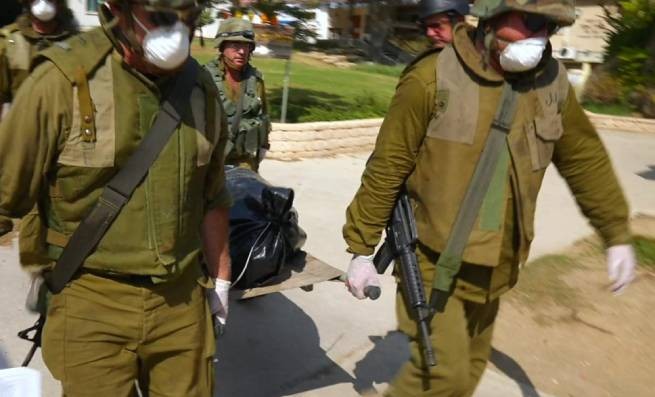During the Hamas attack, dozens of civilians were killed in the Israeli settlement of Kfar Aza, and many children were among the bodies discovered by the Israeli military.
Earlier, the Israeli TV channel i24News, citing information from volunteers of the search and rescue organization Zaka, reportedthat the bodies of 200 civilians were found in Kfar Aza, including, presumably, about 40 children.
How reports moscowtimes.ru, the Israeli military discovered the bodies of dozens of civilians, including children, in Kibbutz Kfar Aza, located near the border with the Gaza Strip. According to the Times of Israel, about 70 residents of the settlement were killed. Major General Itai Veruv says:
“This is not a war, this is not a battlefield, this is a massacre. You saw babies, their mothers and fathers in their bedrooms and shelters, and how terrorists kill them – this is not war.”
As an IDF representative told the publication Financial Times, the kibbutz was attacked by Hamas militants on Saturday. The fighting continued there until Sunday. TV channel i24News clarifies that the total death toll is likely to increase as the military continues to go around houses in search of bodies.
40 babies murdered. pic.twitter.com/70rpzI8isP
— Israel ישראל 🇮🇱 (@Israel) October 10, 2023
BBC correspondent Jeremy Bowen reports from Kfar Aza details that the faint of heart should not read:
“The soldiers, who spent much of the day in the ruins recovering the bodies of civilians, said a massacre had occurred. It seems likely that most of the killing took place in the early hours of the attack on Saturday. The Israeli army, caught by surprise, took 12 hours to reach kibbutz, said Davidi Ben Zion, deputy commander of Detachment 71, the experienced group of paratroopers that led the assault:
“Thank God, we saved the lives of many parents and children. Unfortunately, some were burned by Molotov cocktails. They are very aggressive, like animals. The Hamas militants who killed families, including babies, were “just a jihad machine, killing everyone, [людей] no weapons, no nothing, just ordinary citizens who want to have breakfast, that’s all.”
Some of the victims, he said, were beheaded:
“They killed them and cut off their heads, it’s terrible to see… and we must remember who the enemy is and what our mission is, [ради] justice is where there is a right side, and the whole world must be right.”
Another officer pointed to a bloody purple sleeping bag. A swollen toe came out from there. He said the woman below was killed and beheaded in her front garden. I did not ask the officer to move the sleeping bag to examine her body. A few yards away was the blackened, swollen corpse of a dead Hamas militant.
Kibbutz Kfar Azah adds to horrific evidence of war crimes committed by Hamas militants. Like their Israeli neighbors, the community was caught by surprise. Its security was organized by residents with military experience; they patrolled the perimeter. They all died fighting off the attackers. Their bodies were removed from their positions this morning and placed in a queue awaiting evacuation.
The bodies of the Hamas fighters who killed so many of the community’s civilians were left to rot in the sun, lying uncovered where they were killed – in the bushes, ditches and wide lawns of the kibbutz. Next to their bodies lie the motorcycles on which they broke in after breaking through the border. There are also fragments of a paraglider that flew over Israeli defenses.
No one – here in Kfar Aza or anywhere else in Israel – imagined that Hamas would be able to break through Israel’s defenses and kill so many people. Israelis’ horror and rage are mixed with disbelief that the state and army have failed in their fundamental duty to protect their citizens.”
“When we approached the entrance to the kibbutz this morning,” the journalist says, “there were still hundreds of Israeli soldiers around its perimeter. We could hear their radio communications. The commander gave the order to open fire on the building on the Gaza side. Almost immediately bursts of automatic fire started weapons aimed across the border into the Gaza Strip.”
Hundreds of civilians are also dying in the Gaza Strip. International humanitarian law clearly states that all combatants must protect the lives of civilians. It is clear that the killing of hundreds of civilians by Hamas attackers is a gross violation of the laws of war. Israelis reject any comparison between the way Hamas kills civilians and the way Palestinian civilians are killed in airstrikes.
Major General Itai Weruw, who was about to retire, led the fight for the return of the kibbutz. He insisted that Israel was complying with its obligations under the laws of war:
“I’m sure we will fight for our values and culture… we will be very aggressive and very strong, but we will maintain our moral values. We are Israelis, we are Jews.”
He categorically denied that they had suspended their obligations under the laws of war. However, it is clear that as more Palestinian civilians die, Israel will face increasing criticism.
The BBC spoke to an Israeli soldier who did not want to be named. Like many other Israelis, his experiences in the first few days of this war and what he saw strengthened his resolve to fight:
Question: How difficult were the battles?
Answer: You can’t even imagine.
Question: Have you ever had to do anything like this as a soldier?
Answer: Not so.
Question: What happens next?
Answer: I don’t know, I do what I’m told. I hope we go inside.
Question: Where? To Gaza? It will be a tough battle.
Answer: Yes. We are ready for this.
Israeli soldiers say Hamas militants were everywhere when they arrived in the community area. The soldiers were mainly from reserve units.
Officer Davidi Ben-Zion, who led the first wave of the fight for the kibbutz and saw the carnage perpetrated by Hamas, acknowledged that there were deep political divisions among the Israelis but insisted that they were united now that they were under attack.
Attack on Kibbutz Beeri:
https://www.youtube.com/watch?v=Bd74D4y4I6s
The strong smell of decaying flesh hung under the hot autumn Mediterranean sun. The soldiers carrying out the bodies walked carefully through the ruins of houses that might have been mined, fearing unexploded ordnance. The grenade was lying, for example, on the garden path. While they searched for bodies, occasional alarms about Hamas rocket fire forced them to take cover. After we left Kfar Azah, there was more worry, says Jeremy Bowen.







More Stories
China: highway collapse, dozens of victims and injured (video)
A terrible tragedy in Kyrgyzstan: a truck hit 29 children at a festive event (video)
A 48-year-old Ukrainian was killed in Hungary